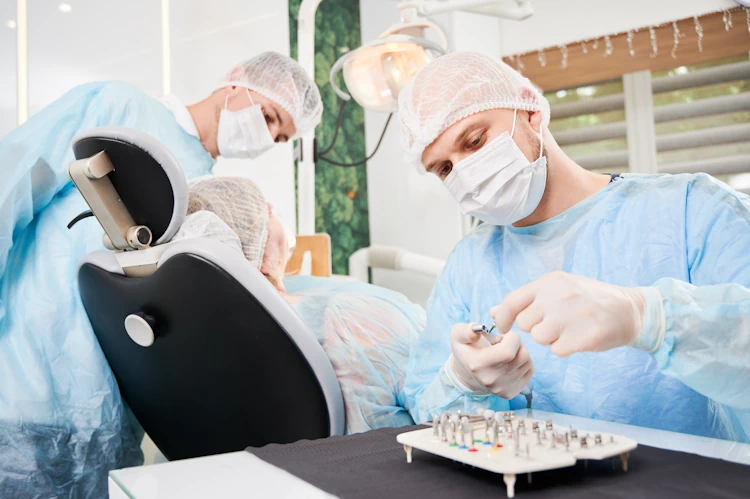Dental emergencies can happen when least expected, and being prepared with the right knowledge is crucial for prompt and effective treatment. This guide provides essential information about urgent dental care in Brisbane, emphasizing the recognition of emergencies, immediate actions, contacting emergency dentist brisbane, costs, insurance coverage, and preventive measures.
Recognizing Dental Emergencies
Understanding the signs and symptoms of dental emergencies is the first step in seeking timely care. Severe toothaches, broken teeth, oral swelling, and facial injuries are among the indicators that require urgent attention. Recognizing these signs helps individuals differentiate between urgent and non-urgent dental issues. Visit dentist bardon for your dental emergencies.
Types of Dental Emergencies
Dental emergencies encompass a range of situations, including severe toothaches, broken or knocked-out teeth, abscesses, infections, and trauma to the mouth or face. Each type of emergency requires specific immediate actions and professional intervention to prevent further complications.
Immediate Actions for Dental Emergencies
In dental emergencies, taking immediate actions can make a significant difference. From managing severe toothaches to preserving knocked-out teeth, knowing the appropriate steps for each situation is crucial. Seeking prompt professional care ensures a higher likelihood of successful outcomes.

Contacting an Emergency Dentist in Brisbane
Knowing where to turn for emergency dental care is vital. Brisbane residents should be aware of the availability of emergency dental services, including information on emergency hotlines or clinics. Having this knowledge ensures quick access to professional assistance in urgent situations.
Preparing for Urgent Dental Care
Preparation plays a key role in addressing dental emergencies. Creating a dental emergency kit with essentials such as gauze, a small container, and over-the-counter pain relievers can be beneficial. Additionally, understanding your dentist’s emergency procedures and having their contact information readily available is crucial.
Costs and Insurance Coverage
Understanding the potential costs associated with urgent dental care is essential for individuals facing emergencies. Checking insurance coverage for emergency dental treatments can provide financial relief. Being aware of these aspects helps individuals make informed decisions during urgent situations.
Common Myths About Emergency Dental Care
Dispelling common myths surrounding emergency dental care is crucial for encouraging prompt intervention. Addressing misconceptions, such as the belief that dental emergencies can be ignored, emphasizes the importance of seeking timely and appropriate care.
Preventing Dental Emergencies
While it’s impossible to predict all emergencies, preventive measures can significantly reduce the risk. Practicing good oral hygiene, using protective gear during physical activities, and scheduling regular dental check-ups for preventive care contribute to overall oral health and minimize the likelihood of emergencies.
Patient Testimonials and Experiences
Real-life stories from individuals who have undergone emergency dental care provide insights into the positive outcomes and the impact on oral health. These testimonials highlight the importance of seeking timely care and the role emergency dentists play in resolving urgent issues.
Conclusion
In conclusion, being informed and prepared for dental emergencies is crucial for residents in Brisbane. Recognizing the signs, taking immediate actions, knowing how to contact emergency dentists, understanding costs, dispelling myths, and practicing preventive measures collectively contribute to effective emergency dental care. Prioritizing oral health and seeking prompt care when needed ensures a healthier and more confident smile.
Frequently Asked Questions (FAQs)
- What should I do if I experience a severe toothache?
- Rinse your mouth with warm water, floss to remove any debris, and take over-the-counter pain relievers. Contact your dentist for further guidance.
- How can I preserve a knocked-out tooth before seeing a dentist?
- Place the tooth in a container with milk or saliva, ensuring not to touch the root. Seek immediate dental care for the highest chance of successful re-implantation.
- Is emergency dental care more expensive than regular dental visits?
- Costs can vary based on the nature of the emergency. Checking with your dentist and understanding potential insurance coverage can provide clarity on expenses.
- Can a dental abscess heal on its own?
- Dental abscesses generally require professional intervention. Seeking immediate care is crucial to prevent the spread of infection and complications.
- How often should I update my dental emergency kit?
- Regularly check and update your dental emergency kit, ensuring that essentials like gauze, a small container, and pain relievers are in good condition and within expiration dates.